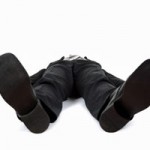




Mark Vink may spend almost of his time bed but his case study could tell us something important about the severely ill
In Dr. Bell’s third and last blog on orthostatic intolerance in ME/CFS/FM he provides signs that you might have OI, explains the different types found, and provides examples of them.
If you’re wondering if you can have more than one type of OI, Dr. Bell demonstates that you can. Find out more about a common problem in ME/CFS/FM that most doctor’s know little about in
▪ Dr. Bell on Understanding Orthostatic Intolerance in Chronic Fatigue Syndrome and Fibromyalgia
|
I |






The link doesn’t work – it sent me to some madmini… site.
Now I see – thanks! I will fix it.
Here’s the right link – http://www.cortjohnson.org/forums/resources/dr-bell-on-understanding-orthostatic-intolerance-in-chronic-fatigue-syndrome-and-fibromyalgia.238/
I Always wonder why there not more research to low bloodvolume. This could be a very important finding, i think. It seems that (ME) doctors don’t find this interesting. Why?
There are researching low blood volume in Norway (rituximab). In facts the blood system is important in their work.
This is very interesting- Cort, do I correctly understand the difference between “OTS” and “POTS” as follows: “OTS” is suffered merely on standing still; “POTS” is suffered in certain postures, which may be different for different people?
It certainly makes sense to me; for years, there have been certain postures that a normal person could “hold” for a long time, or work in all day, that I cannot tolerate for a few seconds. I certainly feel as though something similar is happening, to what is described above about “OTS”. But while standing is probably more fatiguing for me than it is for a normal person, I don’t think I am anywhere near as bad as the above examples, it is more just a case of having “ordinary FM pains” that make standing for long more painful than for the normal person.
I have also realised recently that the pain I get from my pelvic bone area when sitting, is not normal and is another one of my FM symptoms. Funny how one can have FM and not realise how much of one’s body it is affecting. But when sitting in an auditorium, I am forever shifting my position and wriggling around in discomfort. My discomfort on standing is similar – it is simply abnormal pain in the feet and toes and ankles and calves and knees and so on. But I definitely get the tachycardia and fatigue overload with certain postures, such as squatting.
Do you have any hypotheses on the difference between “OTS” and “POTS”? I have been arguing that POTS probably involves tight muscles and myofascia in certain postures, simply cutting off the flow of some vital substance. Obviously this cannot be the problem with OTS. Or can it? Or is POTS caused by something other than what I am assuming? Why would certain postures, in some people, trigger something the same as OTS sufferers experience on standing still?
Cort, the link to “low, low, low blood volume” sends me to an error page. I’m very interested in this. Have already had the daxor test, thanks to your site!! I am trying to put together info to present to Dr Vera (in Miami w Klimas) so she will prescribe a port & IV saline.